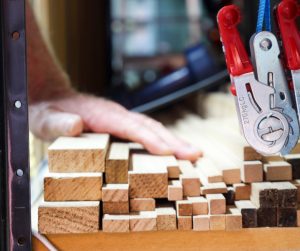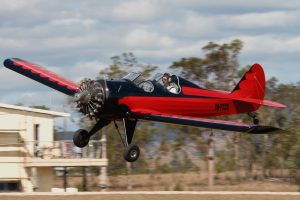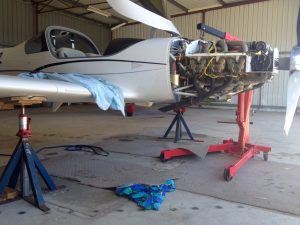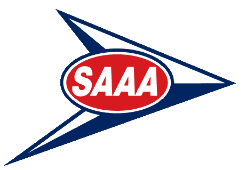This is the real business of what we do and love – this is the pointy end of the fun part.
SAAA provides support, guidance and advice to help make it happen, make it fun – and safe. It’s all about as we say: Plan Wise – Build Well – Fly Safe. Do all of this – and it will be a truly rewarding exerience.
Building (Construction)

At the heart of SAAA’s Build (Construction) support to Member’s are our Technical Councillors (TCs) and Authorised Persons (APs) – between them, these devoted volunteers are there to guide our Members through everything from aircraft selection, project planning, building, and obtaining a Special Certificate of Airworthiness. There are other advisors there to help too, but the TCs and APs are the main supporters in a build process. Find out who and where!
Find out more here……
A comprehensive package of support, programs and documentation for SAAA builders
Special Certificate of Airworthiness (CoA)
Before you can fly your new aircraft, you need an Experimental Certificate – Special Certificate of Airworthiness.
This Certificate can only be issued by a CASA officer or an Authorised Person (AP), delegated by CASA.
SAAA provides a CoA Pack which is available for purchase through SAAA online shop. This will give you all that you need to work towards obtaining your CoA. As part of the process, you should engage the services of a Technical Councillor (TC); and you will also need to use the Risk Radar (RRAv) risk assessment tool.
Authorised Person (AP)
An Authorised Person (AP) is a person who can issue an CoA.
SAAA has its own APs who are SAAA Members trained to a standard approved by CASA, and have been appointed by CASA as “Authorised Persons.”
Our APs act in accordance with the relevant CASA accepted SAAA AP Manual of Procedures. Find out who and where!
Whilst there are various other industry APs who charge commercial rates for their work and Members are of course free to use their services, their costs will more than likely be in excess of a thousand dollars more than engaging an SAAA AP. APs are also available and happy to Members to discuss any construction, maintenance or operational issues.
Engaging an AP early in your project build, or indeed project planning, is encouraged
Technical Councillor (TC)
The SAAA has a number of Members appointed as a Technical Councillor (TC).
TCs are located around the country and connected to Members through the Chapter network. They are volunteers experienced in building at least one aircraft, and often many. They all have a wealth of real practical knowledge around planning, building and documentation that is available to all Member to support and advise around all aspects of the building phase. The TCs operate in accordance with SAAA’s Technical Councillor’s Handbook. Find out who and where!
Builders are advised to engage a TC as early as possible in relation to a build, or major refurbishment, project. No matter how experienced a builder you are, all can derive peace of mind from having the opportunity to seek advice and solve issues from someone dedicated to helping you to succeed
SAAA Member Support Program (MSP)
Building is also supported by the Member Support Program (MSP) Build Assist Program, and special training should you wish to do your own weight & balance. We strongly advise Members to participate in the MSP – it’s free, and participation also affords the opportunity to participate in the SAAA-QBE insurance offer.
Flight Operations

Many of the SAAA Members are extremely experienced pilots, and with experience across many aircraft types in not only the sport aircraft category but in the general, commercial and often military aviation sectors.
A number of the Members provide informal support through the Chapter networks and always happy to help where they can. Many members are also acting in a number more formal ways such in the capacity of Flight Safety Advisors (FSAs). Our FSAs operate in accordance with SAAA’s Flight Safety & Training Manual – in summary our FSAs provide a mix of on ground support around planning, training and test flying, and also support in the air as test pilots, safety pilots, mentoring flight trainers and instructors. As instructors, our FSAs provide type transition training and re-current flight training – delivered by SAAA Members who know our aircraft best. Find out more about the FSA role here. Find out who and where!
You can find a copy of the SAAA Flight Training & Safety Manual (FTSM) in our members Technical Reference Centre
Find out more here……
Guidance and support to SAAA Member builders and pilots by experienced SAAA aviators who know and understand our aircraft
Whilst flight operations support has historically not been as great a focus within SAAA as has aircraft building support, Member demand and the risks associated with in particular early pilot time on types and low time airframes, has driven major development of SAAA’s flight operations support. The all new FSA program, which includes flight instruction was rolled out in December 2018.
Flight Safety Advisor (FSA)
The SAAA has a number of Members appointed as a Flight Safety Advisor (FSA).
They offer support around:
- – Type Transition Training (instruction)
- – Safety Pilot / Mentoring
- – Test flying
- – Planning
- …….. and much more
FSAs are located around the country and connected to Members through the Chapter network. They are volunteers who are very experienced pilots and depending on their experience are accredited to advise and support in regard to a number of aircraft configurations and type classes on all matters relating to planning, flight testing, and general flight operations. This may include acting as test pilots, safety pilots, mentoring flight trainers and flight instructors (type transition training and re-current training). Find out who and where!
We encourage all builders and pilots to engage with an FSA – they can help with the selection of an aircraft to build (with consideration of a builder’s flight experience and capability); they can help with assessing flight safety systems that can be incorporated in to a build or major refurbishment; assist with planning a type transition training program, flight test operations and assessment and ongoing pilot proficiency.
If you would like to know about being an FSA or more about what an FSA can do for you – check out this handy “Guide to being an FSA” here.
** IMPORTANT **
Amongst the many roles our FSAs undertake, we want to draw all Members’ attention to two of the most important areas of guidance that our FSAs can provide:
- – Test Flying
- – Type Transition Training
Getting both of these right can make a very big difference to safety outcomes. You can find out more about all the FSA roles here, but for ease of quick reference, here are some details about Test Flying and Type Transition Training.
Authorised Test Pilot (ATP)
The SAAA has a number of Members who offer their services as test pilots.
As part of SAAA’s enhanced Flight Operations support program, we aiming to increase the numbers of test pilots willing to assist Members in bring their pride and joys into the air for the first time. The SAAA Authorised Test Pilots (ATPs) are FSAs endorsed to provide this important service to SAAA Members. Find out who and where!
We strongly urge Members to consider the option to engage an experienced pilot, who is experienced test flying operations. The statistics show the exposure on early flights to be high as a function of pilot capability and low airframe time. So, unless you are a very experienced pilot, confident you can handle emergency situations and make unemotional operational decisions, a test pilot would a sensible pathway.
SAAA Flight Instructors (formally known as SAAA Accredited Instructors or SAIs)
The SAAA has a number of Members who offer their services as type transition training instructors under special CASA authorisation and in accordance with the SAAA Flight Safety & Training Manual.
These highly experienced SAAA and other pilots are FSAs endorsed to provide type transition training to SAAA Members. Find out who and where!
We strongly urge Members to consider consider type transition training. If the aircraft type you intend to fly is not type with which you have prior flight experience, type transition training is a must. Again, the statistics show the exposure to pilots with low time on type. It doesn’t matter how experienced a pilot you are – take some training to make sure you are prepared to take command of the aircraft you are going to fly. So – think about it – make the call to a nearby FSA and have the conversation.
SAAA Member Support Program (MSP)
Flight Operations are also supported by various elements of the Member Support Program (MSP), in which we strongly advise Members to participate. It’s free, and participation also affords the opportunity to participate in the SAAA-QBE insurance offer.
Flight Test Assist Program (FTAP)
Maintenance

Privileges, training and programs that enable SAAA Members to do their own aircraft maintenance”.
Most SAAA Members maintain their own aircraft. This only made possible by privileges extended to owner / builders who satisfy certain requirements – essentially that they have built the greater part of their aircraft and that they have passed the CASA accepted but SAAA Maintenance Procedures Course (MPC).
Provided the requirements are met, Members can not only enjoy the process of performing occasional and annual maintenance themselves, they will save tens of thousands of dollars over the life of their aircraft projects.Find out more here……
Course and practical ongoing support to help SAAA Members maintain their aircraft
The MPC also includes a Weight & Balance module, a requirement if a builder wishes to do their own weight and balances – again, a cost saver for Members.
Maintenance activities are also supported by the Member Support Program (MSP) Maintenance Assist Program, in which we strongly encourage Members to participate. It’s free, and participation also affords the opportunity to participate in the SAAA-QBE insurance offer.
Find some important links here:
Maintenance Assist Program (MAP)
